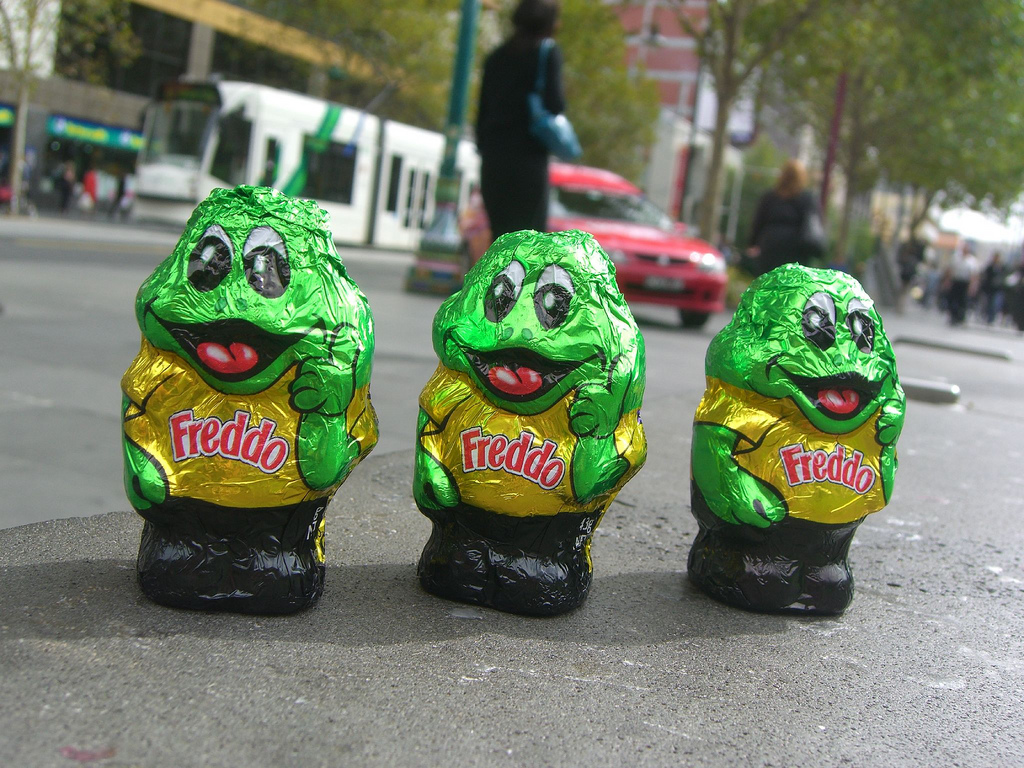
Redbrick’s Harriet Laban discusses what it means for society’s relationship with Supermarket giants, when they tease us with the prices of the past
Tesco celebrated their 100th birthday last week, and their teams created a marketing ploy to target the nostalgia of their customers. The supermarket giant selected some of the nation’s favourite brands and knocked down their current prices, selling them at the same price as they were ‘back-in-the-day.’ The discounts have also highlighted the rise in the cost of living in the twenty-first century.
“These frog-shaped, Dairy Milk chocolate bars originally cost just 10p, yet since 2000 their price has risen 200% to a whopping 30p
The discounted products included PG Tips tea, Heinz baked beans, and Magnum ice creams. One of the most notable food favourites to have been reduced in price is Cadbury’s Freddo bars. The rise in price of the Freddo bar has become an infamous cultural scandal. These frog-shaped, Dairy Milk chocolate bars originally cost just 10p, yet since 2000 their price has risen 200% to a whopping 30p. This is comparative to the 34% rise in wages since the same year. Clearly there is a large disparity in these numbers.
Although seemingly insignificant in today’s busy socio-political climate, the relatively huge price increase has caught the attention of social media. The product’s social media presence has generated an interest in many people, and sparked conversation that has played on our society’s natural tendency to collectivise through mutual interests and shared experiences. Identifying with social media posts about Freddo bars has arguably introduced another dimension of interest in the product. It seems that Tesco caught onto the nostalgia felt by the nation, which is perhaps why it added the Freddo to its birthday price reductions.
“The product’s social media presence has generated an interest in many people, and sparked conversation that has played on our society’s natural tendency to collectivise through mutual interests and shared experiences
The so-called Freddo Index, and discussion of it, has created a lot of free advertising for the product, which Tesco commandeered. This feeds into a paradox; whilst consumers are seemingly outraged about the increase in prices of their long-loved products, their loyalty gives the brands they support the security to continue to put up their prices. As inflation increases, Freddos are predicted to cost an enormous 53p by 2030.
This perhaps produces an example of the way our consumerist society works. Despite people’s best efforts to appear frustrated, even angry, at the way companies take advantage of their brand loyalty, people do continue to be loyal. It is not often that people decide to boycott a brand purely based on decisions to increase the cost of a product. This is indicative of the mutable qualities of the consumer. After having been shocked at the Freddo’s new price of 30p, people across the country have now taken advantage of it being temporarily reduced. If the public were truly upset at the increased prices, surely they would not forgive so quickly? It is clear that love for the product has not grown smaller, albeit the number of Freddos you can buy for £1 has. Tesco used this knowledge to their advantage, and once more the hype around the Freddo has been raised. You might guess that this will likely contribute to sales.
“The so-called Freddo Index, and discussion of it, has created a lot of free advertising for the product, which Tesco commandeered
However much the public has protested the increase in price of the Freddo, Tesco has demonstrated the way consumers will continue to buy into advertising campaigns and consumerist trends. Even if they are averse to their treatment, and aware of it, it seems that people do not care so long as they get the chocolate which has been so widely spoken about and revered in nostalgia. Unfortunately, large corporations seem to always win, but we the chocolate-eaters of the nation do get cheaper Freddos…at least when Tesco treats us!
Comments